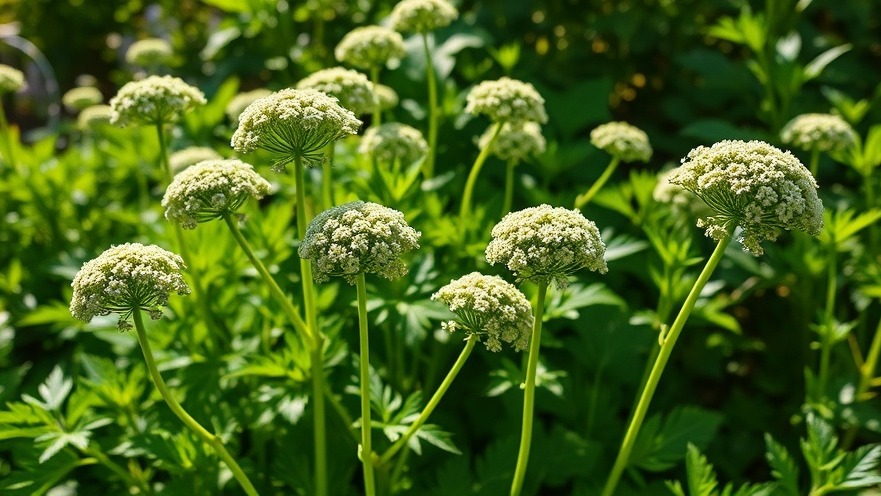
Why Grow Angelica?
Angelica is more than just an eye-catching plant; it’s a versatile addition to your garden that harnesses beauty and utility. Eco-conscious homeowners and modern homesteaders can benefit immensely from cultivating this herb due to its rich history in herbal medicine, culinary uses, and ecological benefits.
Growing Conditions for Angelica
To ensure your angelica flourishes, choose a location with partial shade, as its natural habitat comprises woodlands and meadows. It prefers moist, well-drained soil enriched with organic material—a great opportunity for composting enthusiasts to utilize their organic matter effectively.
Sowing and Planting Techniques
Begin by sowing seeds in early spring, about 1 inch apart. Keep the soil consistently moist, which may require efficient water conservation methods like using drip irrigation or rain barrels. As they grow, consider thinning the seedlings to allow adequate space for their robust growth. Angelica can also be propagated through dividing roots, allowing for a sustainable approach to expansion in your garden.
Harvesting Angelica for Maximum Benefit
By late summer, your angelica plants will be ready for harvesting. Focus on cutting the flower stalks before they bloom, as this enhances the plant’s flavor profile. The stems, leaves, and seeds are all usable; they can be utilized in teas, syrups, and even in culinary dishes for added flavor. Incorporating the whole plant in your diet contributes to the principles of zero-waste practices.
Ecological and Culinary Uses of Angelica
Angelica serves as a pollinator-friendly plant, attracting beneficial insects which help sustain a healthy garden ecosystem. Beyond its ecological contributions, the use of angelica in traditional medicine supports natural landscaping and toxin-free living, providing remedies for various ailments. This plant is considered safe in moderation, but caution is advised due to its potency.
Unique Tips for Successful Cultivation
Consider intercropping angelica with crops that require similar moisture and soil conditions, promoting them to help each other thrive. Using mulch can reduce water needs, preserve soil moisture, and prevent weeds, all while contributing to a healthy, sustainable garden environment.
Conclusion: Embrace Sustainable Gardening with Angelica
Incorporating angelica into your garden is not just about aesthetics; it’s an approach towards sustainable home design that aligns well with eco-friendly gardening practices. Equip yourself with knowledge on its uses, storage, and cultivation, and contribute to a more intentional lifestyle. Learn more about how to integrate angelica into your gardening practices and enjoy the myriad benefits it offers.
For practical insights to further enhance your sustainability journey, consider subscribing to gardening magazines or local horticultural societies that showcase similar eco-friendly practices.
 Add Row
Add Row  Add
Add 




Write A Comment